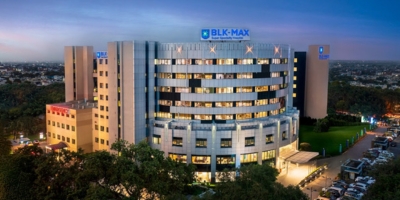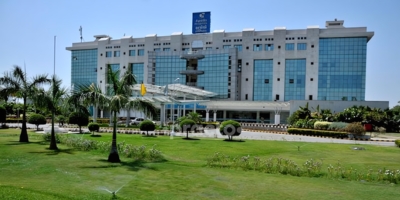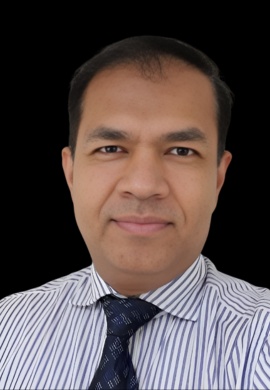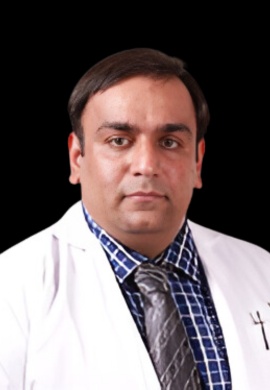Neurosurgery in India
Neurosurgery in India can help you if you are looking for a quality treatment for a neurological condition. This article discusses various neurosurgery procedure in India, top neurosurgeons, their quality and effectiveness.
Neurosurgery
Neurosurgery is a surgical treatment for a disease or injury in the brain, spinal cord, spinal column, and peripheral nerves in the body. Some common neurological conditions that Neurosurgeons treat are:
- Central nervous system infections like Meningitis
- Spinal Disc Herniation
- Spinal Stenosis
- Traumatic injuries of head (brain hemorrhage), spine, and peripheral nerves
- Epilepsy
- Parkinson's Disease
- Tumors of the spine, spinal cord and peripheral nerves
Neurosurgery Cost in India
The cost of neurosurgical procedures in India starts from $5,000 and averages to $9,000. Traditional procedures that require incision usually cost less than modern non-invasive or minimally invasive ones.
The cost of non-invasive procedures like Cyber Knife Surgery may vary between $8,000 - $11,000. Surgery to control Epileptic seizures may cost around $5,000 - $7,500.
| Neurosurgery Type | India Cost (USD) |
|---|---|
| DBS Surgery | $25,000 - $30,000 |
| Craniotomy | $9,000 - $9,600 |
| Brain Tumor Surgery | $5,000 - $7,000 |
| Gamma Knife Radiosurgery | $6,000 - $8,000 |
| Cyber Knife Radio Surgery | $8,000 - $11,000 |
| Skullbase Surgery | Depends on case |
| Epilepsy Surgery | $5,000 – $7,500 |
*Prices are case dependent
Neurosurgery Procedures
Stereotactic Radiosurgery (SRS)
Stereotactic Radiosurgery removes the tumor in the brain or spine with focused radiation beams. Unlike traditional surgeries, this surgery does not need an incision.
Instead, it uses high-intensity radiation to damage the DNA of abnormal cells without damaging the surrounding healthy cells.[1]
It is called Stereotaxic surgery or Stereotaxy. There are mainly 3 types of Stereotactic Radiosurgery:
Special Gamma Knife machines target gamma rays at abnormal growths in the brain. Gamma Knife Surgery is the gold standard for treating tumors in the brain and has been in use for 40+ years.[2]
It costs more than the open surgery but is non-invasive and is less risky. In India's accredited hospitals, Gamma Knife surgery may cost between $6,000 to $8,000.

Cyber Knife machines target photons or Xrays at abnormal growths.
- The rays can be targeted accurately from over a thousand positions in real-time, causing no damage to surrounding tissues.
- You may not require anesthesia during Cyber Knife procedure.[3]
The cost of Cyber Knife Surgery in India is $8,000 - $11,000.
Our partner hospital uses advanced technologies like CyberKnife® Robotic Radio Surgery System and is one of the first to introduce it in the Asia Pacific region.
This surgery uses the Neuronavigation technique to treat tumors that are deep within the brain or movement disorders like Parkinson's Disease.
Here the images of the brain guide the surgeon to the target during the surgery. It may remove large brain tumors with accuracy.
Deep Brain Stimulation (DBS) Surgery
DBS involves placing an implant in the brain that sends electrical impulses to specific areas in the brain (usually brain areas responsible for movement).
Because of the implant's functional similarity to a cardiac pacemaker, it is also called a brain pacemaker or neurostimulator.
It is usually done to treat movement disorders like Parkinson's Disease.[4] If you plan to have Deep Brain Stimulation surgery in India, the surgery may cost you $25,000 - $30,000.
Epilepsy Surgery
Epilepsy surgery may reduce seizures in epileptic patients to some extent. There are several ways your surgeon may perform the surgery to treat Epilepsy -
- Remove the specific part of brain which is causing seizures.
- Or separate the seizure-causing part of the brain from the rest of the brain.
- Or stop nerve impulses that cause siezures by disrupting their path.[5]
In India, the average cost of Epilepsy Surgery varies between $5,000 - $7,500. The cost may vary depending on the route your surgeon thinks is the best to treat Epileptic siezures.
Skull Base Surgery (Cranial Base Surgery)
It is a surgical method to remove a tumor at the base of the skull. The surgery is complex because of the tumor's proximity to important blood vessels and nerves.
Due to its complexity, a team of Neurosurgeon, Plastic Surgeon, Vascular Surgeon, and Neck Surgeon may do this surgery.[6]
Though the cost may depend on several factors exclusive to the patient, Skull Base Surgery in India may cost between $5,000 – $7,000.
Neuro-Endoscopic Surgery
It is a minimally invasive technique to treat certain brain tumors, hydrocephalus, drainage of brain abscesses or cysts, and brain aneurysms.
In this surgery, the surgeon inserts a small camera (endoscope) into the patient's brain through a small incision to access and treat the problem area.
Best Accredited Neurosurgery Hospitals in India
India is home to internationally accredited neurosurgery hospitals. These hospitals use minimally invasive surgical methods (when possible) and give importance to the patient's comfort and quality of treatment.

Apollo Hospitals
- 7 JCI-accredited hospitals in Chennai, Ahmedabad, Bangalore, Delhi, Hyderabad, Kolkata, and Mumbai.
- Specialized equipments like Neuroendoscopy and Novalis Tx Unit.
- Dedicated Neuro ICU and Neuro post-op ICU.
Neurosurgery in India | Apollo Hospitals International | Best JCI-Accredited Neurosurgery Hospital

The JCI-accredited facility is one of the largest private clinics in Delhi and ranks among the top 10 multi-specialty hospitals.
As part of the Max Healthcare Group, a leading provider in India, it caters to both domestic and international patients.
The hospital specializes in cancer treatment, bariatric surgery, and cardiology, using advanced equipment that meets European hospital standards.
- 60+ Years of Experience
- JCI Accredited
- NABH Accredited
- JCI-accredited hospital with 650+ beds and 300+ medical experts.
- Advanced Neuro technologies like Intra operative Neuro Monitoring, Electroencephalogram (EEG), and Electromyography (EMG).
- Neurosurgical treatments for Epilepsy, Stroke, Back Pain, Microscopic & Endoscopic Disc Surgeries, and Brain & Spine tumours.

With a legacy of more than 20 years, AHIL is a premier destination for healthcare services in Ahmedabad, India.
With over six Centers of Excellence and 35+ specialty branches, AHIL delivers comprehensive clinical care to 18,000+ patients annually.
- ISO Certified
- JCI Accredited
- NABH Accredited

The JCI-accredited hospital is the flagship of the Apollo Group and treats over 20,000 international patients annually
With more than 60 departments, this multi-specialty hospital is staffed by internationally trained medical experts and supported by dedicated care teams.
They prioritize your health and comfort with state-of-the-art facilities, providing exceptional care from the moment you arrive.
- JCI Accredited
- NABH Accredited
- ISO Certified
Top Neurosurgeons in India

Dr Navneet Saraiya
Dr. Navneet Saraiya is a skilled spine surgeon with MRCS from Edinburgh and FRCS in Trauma & Orthopaedics from Glasgow.
He has trained extensively in the UK, gaining experience at:
- Cardiff's Major Trauma Centre
- Swansea's regional centre for navigational spine surgery
Dr. Saraiya also holds a Postgraduate Certificate in Clinical Research from Edgehill University, England.
Education
B. J. Medical College, Gujarat
Memberships
- British Association of Spine Surgeons

Dr. Deepak Malhotra
Dr. Deepak Malhotra is a neurosurgeon and recognised postgraduate teacher at Gujarat University.
He has served as an examiner for MCh Neurosurgery on three occasions.
Dr. Malhotra earned ECFMG certification.
He also completed fellowships in urogynecology and neuro-urology at Long Island Jewish Medical Center, New York.
He has also co-authored numerous research publications in reputed journals.
Education
Gujarat University, India
Memberships
- Urological Society of India
- All Indian Surgeon's Association
FAQs
Duration of hospital stay depends on the type of surgery you have. On an average, Neurosurgery patients are required to stay for 5 - 7 days in the hospital.
You may be required to stay for 5 - 7 days in India after you are discharged. During these days, your surgeon will monitor your condition closely and ensure you are healthy enough to travel back.
We can help you find good quality hotels near the hospital for post-surgery stay.
Whether it is safe for you to join work depends on the nature of your work and your recovery. On an average Neurosurgery patients can join work 2 - 4 weeks after surgery.
Yes. Your surgeon can provide followup over call and email. They can also help cross consult reports with your local doctor.
To consult your doctor again after you return home, you can contact your case manager.
Yes. Though our partner hospitals provide the highest quality in Neurosurgery, your surgery in India will cost only a fraction of what it would have in the US.
Once you contact us, a Case Manager will be in touch with you within 24 hours to know about your needs and concerns. They will help you get your surgery scheduled in the best accredited hospitals and experienced Neurosurgeons in India.
You will need to submit to your Case Manager your medical reports (CT scans, MRIs, EEG, PET scans, SPECT scans) as asked by your Neurosurgeon in India. These reports will help them analyze and suggest the best treatment for your case.
Technology and quality of Neurosurgery in India is comparable to the world's best hospitals.
Although India is home to countless hospitals, the top hospitals here are accredited by the Joint Commission International (JCI) or National Accreditation Board for Hospitals (NABH).
To know more about the hospital best suited for your needs, fill out our quote form. A dedicated Case Manager will guide you through the journey of Neurosurgery in India.
In the medical world, "tomy" means "removal". In Craniotomy, the surgeon will remove some part of the bone or skull. It is usually done as a part of another procedure to expose the problem part of the brain.
It may be done during a surgery for brain tumor, aneurysm, remove blood clots, epilepsy or hydrocephalus.
Yes. The patient will need Medical Visa, and any attendants with the patient will need Medical Attendant Visa. We can help you get the visa by providing the Medical Visa Invitation Letter.
An easy way to apply for Medical Visa is online on iVisa.com.[7]
The Medical Visa in India allows you to extend the length of your stay if there is a medical emergency. Also bear in mind that "Medical e-Visa" is not extendable.
Yes, our staff and the doctors speak in English. Our partner hospitals can also arrange an interpreter. All you need to do is ask your case manager in advance.
Both orthopedic surgeon or neurosurgeon may perform a spine surgery.
An orthopedic surgeon specializes in disorders of bones and joints including those of the spine. They may be trained to treat spinal deformities like Scoliosis or Disc Herniations.
A neurosurgeon specializes in treatment disorders and injuries in the brain, spine, spinal cord, and nerves. Some spine surgeons may focus their practice on spinal problems.
To specialize in spine surgery procedures, both orthopedic surgeons and neurosurgeons complete fellowship or training in spine surgery.
To select a surgeon for spine, you can check their specialty during fellowship or training and whether they have performed successful spine surgeries before.[8]
References
- MayoClinic: Stereotactic Radiosurgery
- Pasadena Cyber Knife: Difference Between Gamma Knife and Cyber Knife
- University of Virginia School of Medicine: Comparison Gamma Knife to CyberKnife
- Mayfieled Brain and Spine Cincinnati: Deep Brain Stimulation
- Epilepsy Society: Brain Surgery or Neurosurgery for Epilepsy
- Stanford Health Care: Skull Base Surgery - Cranial Base Surgery
- India Medical Visa: iVisa
- Spine-health: Insights on Choosing a Spine Surgeon




